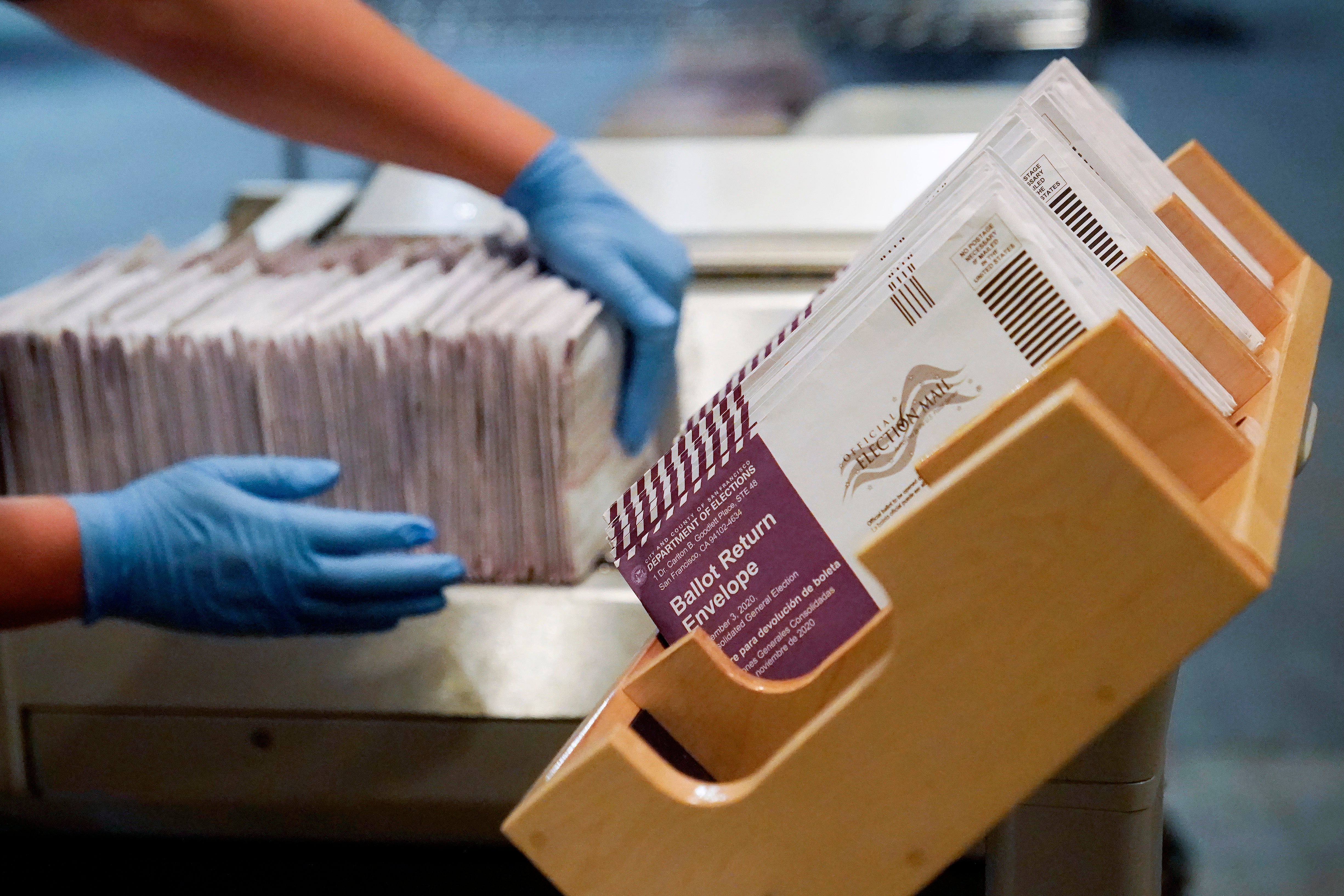Study: No partisan benefit from mail voting in 2020 election
A new study finds the expansion of mail voting did not benefit Democrats or increase turnout

Your support helps us to tell the story
From reproductive rights to climate change to Big Tech, The Independent is on the ground when the story is developing. Whether it's investigating the financials of Elon Musk's pro-Trump PAC or producing our latest documentary, 'The A Word', which shines a light on the American women fighting for reproductive rights, we know how important it is to parse out the facts from the messaging.
At such a critical moment in US history, we need reporters on the ground. Your donation allows us to keep sending journalists to speak to both sides of the story.
The Independent is trusted by Americans across the entire political spectrum. And unlike many other quality news outlets, we choose not to lock Americans out of our reporting and analysis with paywalls. We believe quality journalism should be available to everyone, paid for by those who can afford it.
Your support makes all the difference.Donald Trump last year publicly worried that the explosion in voting by mail during the pandemic would increase turnout so much that “you'd never have a Republican elected in this country again.” But a new study shows the record rates of mail voting in 2020 didn't help Democrats or lead to an increase in voting.
The research is only the latest in a years-long number of studies finding no partisan benefit to mail voting. But it also draws the conclusion that making it easier to vote did not increase voting levels because voters were already highly motivated to participate in the 2020 contest.
“We find a pretty precisely zero effect on turnout,” said Jesse Yoder, one of the study's authors and a Ph.D. student in political science at Stanford University “Voter interest was really driving turnout more than these convenience voting forms.”
The researchers proved this with a novel approach — examining turnout rates in Texas, which, unlike many states, did not ease its mail voting restrictions during the pandemic. Voters 65 and older could vote by mail automatically, while younger ones still had to provide a legally justified excuse.
The researchers compared the voting rates of 65-year-olds with automatic access to mail voting to those of 64-year-olds who lacked them. The two age groups voted at identical rates and there were only .2% more Democrats in the 65-year-old group than in the 64-year-old one, showing mail voting didn't increase Democrats' share of the vote.
The researchers found there was a modestly higher turnout rate among 65-year-olds compared to those a year younger in 2014 and 2018, implying that mail voting does increase turnout in off-year elections when interest in the contest is typically lower.
Democrats were more likely to vote by mail than Republicans in 2020 — largely due to Trump polarizing the issue. But that didn't help them win the election, the Stanford study found, because they were equally less likely to vote early in-person or on Election Day. The 65-year-olds, for example, were 9.5% more likely to vote by mail but 9.5% less likely to vote in person.
Another recent study from Emory University's Alan Abramowitz found that states that encouraged mail voting in 2020 saw a sharper increase in turnout than those that did not. But, notably, Democrats did not do any better in those higher turnout states.
“Eased absentee voting rules were not the only reason for increased turnout in 2020, but they did make a difference,” Abramowitz wrote in his study, released late last month. However, he added, it did not help President Joe Biden increase his share in any of the states.
Abramowitz noted that Republican-controlled state legislatures are now rushing to curtail mail voting, convinced it cost them the White House.
“These findings suggest that efforts by Republican legislators in a number of states to roll back eased absentee voting rules and make it more difficult for voters to take advantage of absentee voting in the future are unlikely to benefit GOP candidates,” he wrote.